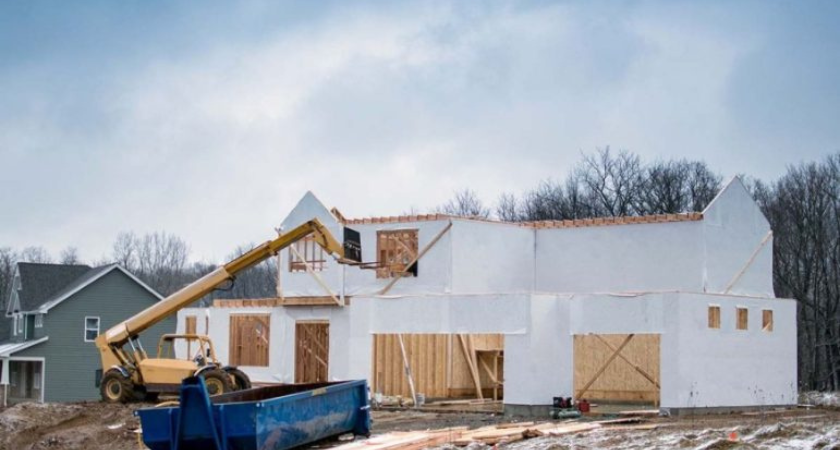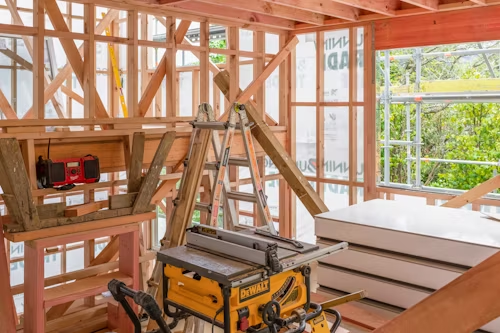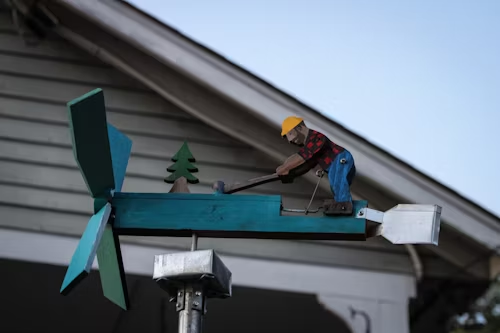
LANSING, Mich. — Michigan’s effort to update its home energy efficiency standards has been pushed back again, stalled by a lawsuit from homebuilders who argue the new code is too costly and threatens affordable housing efforts.

The updated rules, modeled after the 2021 International Energy Conservation Code (IECC), would require new homes to be built with more insulation, tighter seals, and energy-saving materials. According to the U.S. Department of Energy, the standards could cut utility bills by 10.7% — about $396 in annual savings — and save homeowners approximately $7,300 over 30 years.
But the Home Builders Association of Michigan and the Michigan Manufactured Housing Association are suing the Department of Licensing and Regulatory Affairs (LARA), saying the added construction costs — as much as $5,000 per new home — could slow housing production and hurt buyers already struggling in a tight market.
“The state has moved in a tremendous way to help support more workforce housing, attainable housing across the state,” said Bob Filka, CEO of the Home Builders Association of Michigan. “Unfortunately, in this area, a lot of that momentum will be lost if they actually do get the ‘21 (code) implemented.”
The lawsuit has left the code update — originally scheduled to go into effect in August — on hold while the courts weigh the case.
Energy advocates argue the delays are costing Michigan homeowners thousands in lost savings while prolonging reliance on less-efficient homes.
“It does a disservice to the people who live in our state who aren’t seeing those energy efficiency benefits and lower utility bills in their new homes,” said Carlee Knott, energy and climate policy manager at the Michigan Environmental Council.
Federal data suggests the changes could also cut statewide carbon emissions by 44,850 metric tons in the first year and create up to 10,000 jobs by boosting construction and increasing homeowners’ disposable income.
Homebuilders counter that the 2021 standards are outdated, too rigid, and in some cases redundant.
“The ‘21 code is great for insulation manufacturers, but the ‘24 code is great for homeowners and builders,” said Filka, pointing to requirements such as insulating ducts even when they are already inside insulated spaces.
Industry groups want Michigan to skip the 2021 standards and instead adopt the newly released 2024 IECC, which they say allows more flexibility and reduces unnecessary costs.
State law requires building code updates to be “cost-effective,” but regulators and builders disagree on how to measure that.
Builders cite DOE research showing it could take nine years for savings to offset upfront costs — longer than the state’s seven-year requirement. Regulators, however, argue that when spread over a 30-year mortgage, homeowners would see positive cash flow in just two to six years.

The dispute comes as Michigan faces a well-documented housing shortage. Experts warn that rising costs are influenced more by labor shortages, materials prices, and restrictive zoning laws than by energy codes alone.
“Regulatory barriers are a major reason for the housing shortage,” said Alex Horowitz, housing policy research director at Pew. “Energy efficiency is not one of the primary ones, though.”
Other states, Horowitz noted, have eased zoning rules to spur construction, such as allowing smaller lot sizes, backyard cottages, and conversions of office space into apartments. Michigan has yet to enact such reforms, though the Michigan State Housing Development Authority recently issued guidance urging local governments to cut barriers like minimum lot sizes and off-street parking requirements.
Meanwhile, Michigan lags behind its neighbors: 26 states have already updated past the 2015 IECC, with 12 adopting the 2021 code. Michigan remains tied to the 2015 version, now two cycles behind federal recommendations.
The lawsuit’s outcome could shape Michigan’s housing market and climate goals for years. If the courts side with homebuilders, Michigan may pivot directly to the 2024 code. If LARA prevails, the 2021 standards could finally take effect — delivering promised savings, but with the higher upfront costs builders fear.
For now, Michigan homeowners looking to buy new construction may remain caught in the middle of a tug-of-war between affordability and long-term savings.
Originally reported by Emilio Perez Ibarguen in Great Lakes Echo.